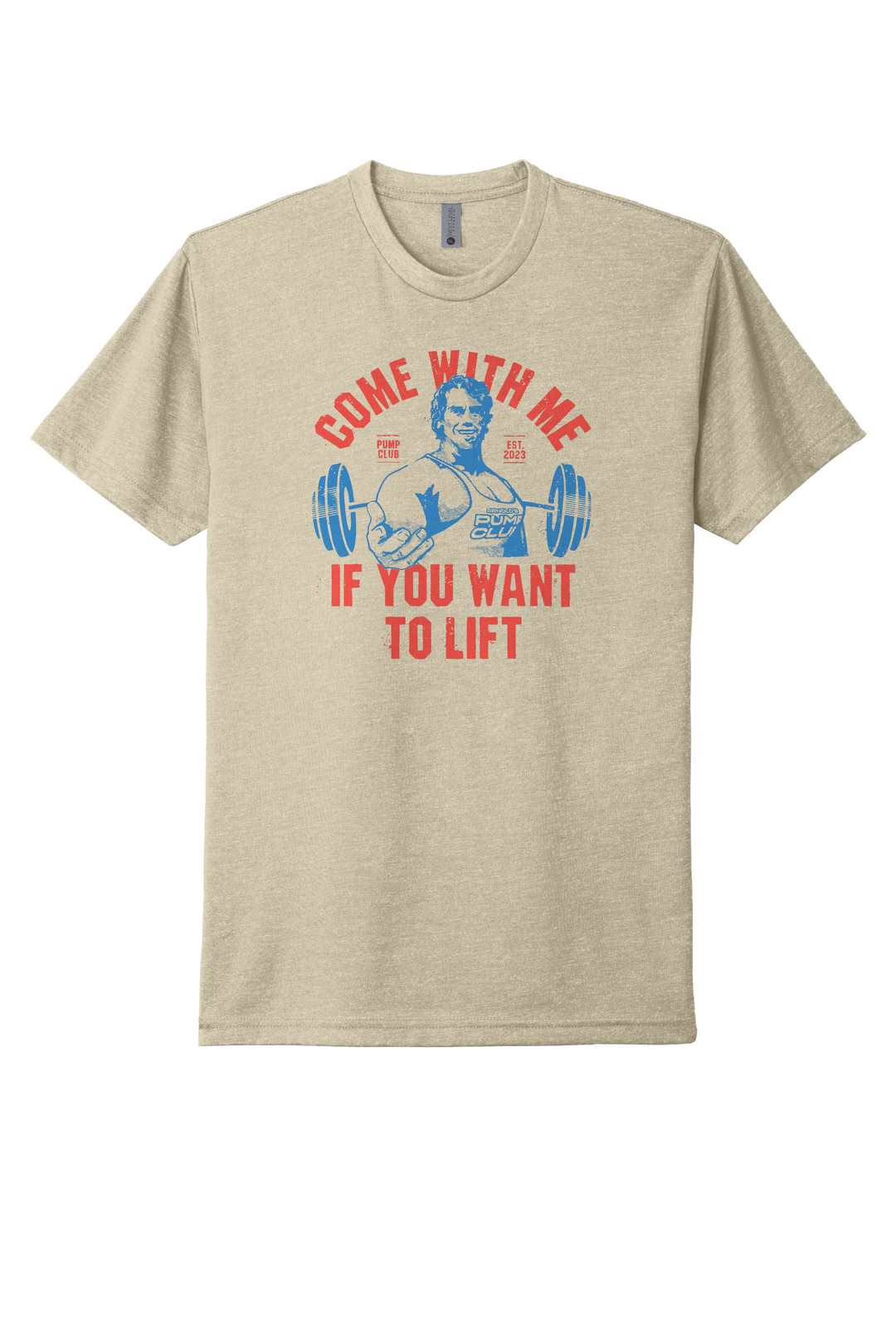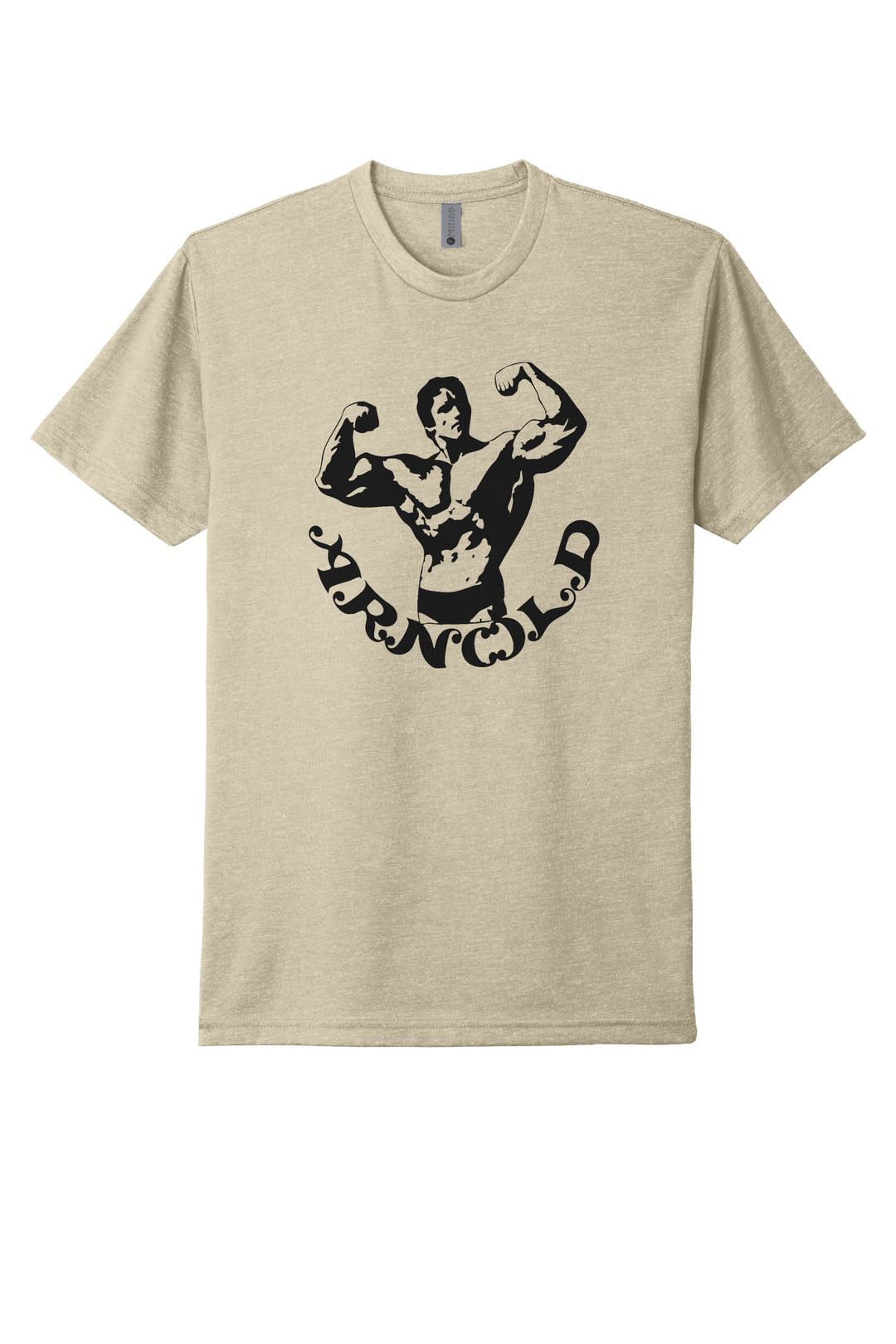Welcome to the positive corner of the internet. Here’s a daily digest designed to make you healthier in less than 5 minutes. If you were forwarded this message, you can get the free daily email here.
Today’s Health Upgrade
The 2-minute blood pressure fix
Performance-enhancers for your career
The positive corner of masculinity
Arnold’s Podcast
Motivation every day. Want Arnold to help you start your day? Each morning, we post a new podcast with tips you’ll find in the daily email and bonus stories, wisdom, and motivation from Arnold. Listen to Arnold's Pump Club podcast. It's like the daily newsletter but with additional narration and thoughts from Arnold. You can subscribe on Apple, Spotify, Google, or wherever you listen to podcasts.
The Blood Pressure Fix
Managing blood pressure can be tricky because it’s influenced by your diet, lifestyle and exercise habits, and genetics. But if you’re looking for an effective way to help your heart, here’s some good news.
Resistance training can reduce blood pressure and improve cardiovascular health as much as medicine, and performing one specific exercise for two minutes exercise could offer some incredible health benefits.
That was the takeaway from a massive review of 270 studies examining nearly 16,000 people. The researchers reviewed studies that used aerobic exercise, dynamic resistance exercise, combined aerobic and resistance exercise, high-intensity interval exercise, and isometric exercise.
They found that isometric exercise was most effective at reducing systolic and diastolic blood pressure. Isometric exercises require you to contract your muscles for a prolonged period. The longer a muscle is tightly contracted, the more nitric oxide your body releases when the muscle relaxes. Nitric oxide is a potent vasodilator that reduces blood pressure.
If you’re looking to rank-order the effectiveness of exercises on blood pressure, after isometrics, resistance training (think traditional weight lifting) was most effective, followed by aerobic exercise and high-intensity interval exercise. And for people with hypertension, the study suggests that exercise was just as effective as medication for lowering blood pressure.
If you’re looking to add a little blood pressure RX to your life, it’s not complicated or time-consuming. The researchers found that performing wall squats can help do the trick. In particular, four sets of 2-minute long isometric squats showed the biggest improvements, meaning you remain in the “seated” part of a squat for 2 minutes. Do the 2-minute squat, rest between 1 to 4 minutes between each set, and repeat. That alone could help improve your blood pressure.
The Career Performance-Enhancer
There’s no shortage of ways to climb the corporate ladder. But did you ever consider that getting a gym membership could be a good career move?
Research suggests that prioritizing exercise helps improve your overall job performance.
The scientists aimed to understand how training and movement create a domino effect on other aspects of your life, including work performance that day after you exercise. They found that exercise makes a big impact in and outside of the gym.
Exercise appears to make you better at your job because it has a carryover effect on your focus, creativity, and self-efficacy. Each time you exercise, you boost your ability to process information more effectively, improve attention to work tasks, and maintain focus. Most importantly, the researchers found that exercise increases self-efficacy, which is your perception that you can be great at your job.
Higher self-efficacy increases motivation and your belief that you can overcome challenges in the workplace. And if you want to see the most significant improvements, exercise for reasons that matter to you.
Researchers found that exercising for intrinsic reasons — such as mastery, purpose, progress, or personal growth — resulted in a 20 percent higher probability of improved work performance the following day. This suggests that finding purpose in prioritizing your health can positively affect your performance and well-being.
The Positive Corner of Masculinity: Featuring Adam Bornstein
Editor’s note: We promised the village we would take on the topic masculinity with one column a week. This is the latest installment.
Yesterday, as I paced between sets of squats, I felt tears on my cheeks. That was when I knew it was time to confront my demons.
Before this year, I can’t think of a single time I cried in the gym, including when I accidentally slammed a 45-pound plate into my face and nearly knocked out my teeth. But it’s become an unexpected, uncontrollable ritual for the last three months.
In July, my father passed away after a 3-year battle with brain cancer. The first time I trained after his passing, the sound of Tom Petty — one of my dad’s favorite artists — broke me. The lyrics “You wreck me, baby” have never been more accurate. Another time, I looked at the concrete floor in my gym and started to cry. When my dad was going through treatment, I would write different messages in chalk on my floor. I can still see “for dad” — although the chalk has long faded.
Crying is easy for me, but it hasn’t always been welcomed. Growing up, kids called me every name in the book and mocked me for my “softer side.” I won’t pretend it was easy; but it was also the most genuine version of myself, and over time, that reality brought me peace.
Some guys resolve conflict by asking others to step outside. I’m the guy who will offer a hug.
Some guys need to assert dominance by demeaning those less fit. I can lift heavy weights, play sports, and hold my own in any crowd, but I don’t feel the need to flex on anyone else.
Some guys need to boast about their successes, but I prefer to prove myself over and over again.
Masculinity doesn’t necessitate making noise or tearing people down. It’s about leaving a positive impact that can be felt, and not being afraid to challenge boundaries that hold back progress. Even if that means showing your heart and crying in front of others.
But when I needed my tears the most, my ducts went dry.
My dad was not a crier. Until his final week, I saw my dad cry three times in my forty-plus years on earth. The first time was more than ten years ago after my dad woke from a coma resulting from a ski accident. I didn’t see him cry again until I gave him a copy my most recent book, which included a special dedication to him. And then again, when his father passed a few months before he did.
My dad’s rivalry with emotion left me conflicted. Rather than seeing what would happen if I challenged my dad’s boundaries, I complied with them and gave him a modified version of myself. In his presence, I leaned into stubbornness and toughness — traits I certainly possess and ones I saw my dad display easily. But that was just a part of me.
Over the years, my dad and I had differences. Despite those differences, I respected my dad and was proud he was my father. I loved him so much. I spent many years wondering how we could be closer. But I never gave him much chance to connect with the most authentic version of myself. Maybe it was fear. Maybe it was shame. Maybe it was stubbornness. But, eventually, I saw what I was missing.
About two weeks before he passed away, I kissed my dad on the forehead for the first time. I was so nervous to display that type of affection for him. And when it happened, I remember looking into my father’s graying eyes and seeing compassion and love.
I left hospice that day, sat in my car, and cried. I knew his end was near. But my tears were about a beginning that came far too late.
My dad was a great man. I learned some of my favorite characteristics — loyalty, honor, integrity, commitment, passion, and intensity — from him. But there’s one more — being genuine — that I’ve always tried to embody. And yet, that seemingly disappeared in the presence of the man who instilled it in me.
For my dad’s generation, being a man meant holding your emotions inside, and I respect that. But like Arnold said when he accepted the LA Holocaust Museum Award this week, each new generation offers the opportunity for change. I’ve chosen to wear my heart on my sleeve to honor my dad because, as stubborn as he was, he loved disruptors. My sons will never see me bottle up my love, my grief, or my joy.
The sadness of death is that there’s a finality. The beauty of death is that it makes every day valuable, and those we love can live on if we choose to honor them.
Many think masculinity is about dominance, strength, and success. But those are characteristics and outcomes that are a byproduct of behaviors. It’s not innate or owned by a gender.
Being a good man isn’t about living up to some preconceived notion of maculinity. Instead, you need to live with purpose. And that means giving your all, challenging the boundaries of discomfort, celebrating your wins, embracing vulnerability, accepting your weakness, and owning your losses. These are all human qualities.
I lost my dad. And when I had the time, I missed the opportunity to make the most of our relationship. That’s my failure to live with.
But it also makes it my responsibility to share that lesson with all of you. If my mistakes can help you live with more intention, that can help you become the most genuine version of yourself.
And I can’t think of many things that would make my dad more proud.
Adam Bornstein is editor-in-chief of Arnold’s Pump Club, Pop-A-Shot champion of his family, and the author of You Can’t Screw This Up.
—
Publisher: Arnold Schwarzenegger
Editors-in-chief: Adam Bornstein and Daniel Ketchell







































